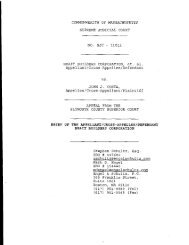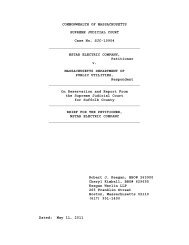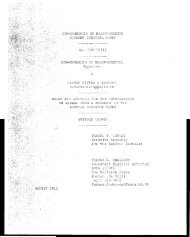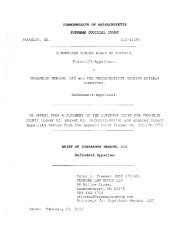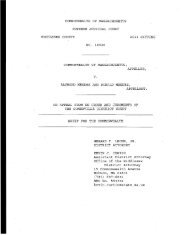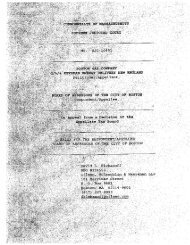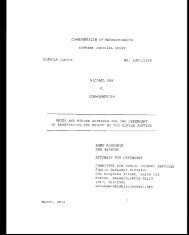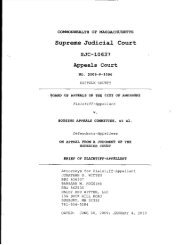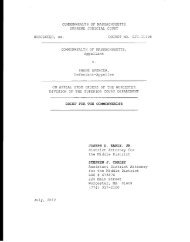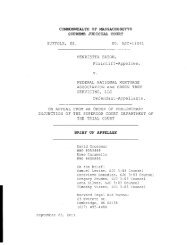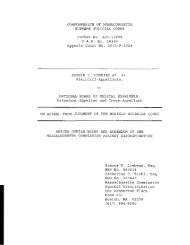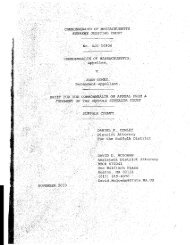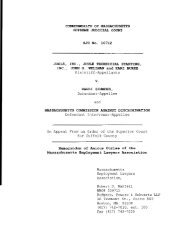464 Mass. 566 - Appellant Montoya Brief - Mass Cases
464 Mass. 566 - Appellant Montoya Brief - Mass Cases
464 Mass. 566 - Appellant Montoya Brief - Mass Cases
Create successful ePaper yourself
Turn your PDF publications into a flip-book with our unique Google optimized e-Paper software.
variable that differentiates the inquiries into the<br />
voluntariness of the waiver and the voluntariness of<br />
the statement is the interrogation techniques used by<br />
the investigating police officers. See Commonwealth v.<br />
Scoggins, 439 Mss. 571, 577 (2003).<br />
The defendant concedes that the evidence would<br />
support a finding that the defendant waived his<br />
Miranda rights. However, based upon the totality of<br />
the circumstances, the Commonwealth has not discharged<br />
the heavy burden that it has to show that the<br />
defendant's statements to Lieutenant Brooks concernirig<br />
the hide were voluntary. The undisputed evidence at<br />
the motion hearing was that Trooper Saunders pressured<br />
the defendant to co-operate with the police by telling<br />
the defendant that he was being charged with a serious<br />
crime and that it would be in his best interest to<br />
talk with him. The defendant continued to be held in<br />
the small booking room and handcuffed to the wall<br />
until Lieutenant Brooks arrived. To put further<br />
pressure on the defendant, Lieutenant Brooks told the<br />
defendant that a K-9 had alerted the police to the<br />
presence of narcotics in his motor vehicle. At first<br />
the defendant did not say anything in response to this<br />
30



